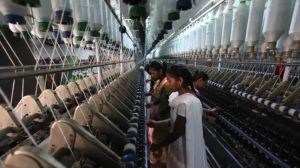‘Held broad consultations’ on new IT rules: India counters UN commentators
In a letter, the Permanent Mission of India said that in these stakeholder meetings, conducted in 2018, the Ministry of Electronics and Information Technology (MeitY) had sought views from individuals, civil societies, industry associations as well as organisations.
 In their letter, the special rapporteurs had said that the new guidelines for social media intermediaries did not appear to meet the requirements of international law and standards related to privacy, freedom of opinion and expression.
In their letter, the special rapporteurs had said that the new guidelines for social media intermediaries did not appear to meet the requirements of international law and standards related to privacy, freedom of opinion and expression.The Permanent Mission of India at the United Nations (UN) and other international organisations in Geneva countered the charges made by the three special rapporteurs on the new Information Technology (IT) Rules and asserted that government had undertaken “broad consultations” with various stakeholders in 2018 before finalising the rules.
In a letter, the Permanent Mission of India said that in these stakeholder meetings, conducted in 2018, the Ministry of Electronics and Information Technology (MeitY) had sought views from individuals, civil societies, industry associations as well as organisations.
“Thereafter an inter-ministerial meeting had discussed in detail the comments received in detail and, accordingly, the Rules were finalised. The Permanent Mission of India would also like to highlight that India’s democratic credentials are well recognised. The Permanent Mission of India requests that the enclosed information may be brought to the attention of the concerned Special Rapporteurs,” the letter read.
On June 11, three UN special rapporteurs on the promotion and protection of the right to freedom of opinion and expression, rights to freedom of peaceful assembly and of association and right to privacy had in a letter expressed their apprehension on various aspects of the Intermediary Guidelines and Digital Media Ethics Code.
In their letter, the special rapporteurs had said that the new guidelines for social media intermediaries did not appear to meet the requirements of international law and standards related to privacy, freedom of opinion and expression, as guaranteed by Articles 17 and 19 of International Covenant on Civil and Political rights, which India had signed on April 10, 1979.
“We encourage withdrawal, review and reconsideration of certain key aspects of this legislation to ensure that the Rules are in compliance with your Excellency’s government’s international human rights obligations,” the three special UN rapporteurs had said in their letter.
Referring to IT Ministry’s January 31 and February 4 notices to Twitter, in which the former had asked the platform to block access to over a 1,000 accounts, the rapporteurs expressed worries that the new rules could provide “authorities with the power to censor journalists”.
Referring to the IT Ministry’s January 31 and February 4 notices to Twitter in which the former had asked the platform to block access to more than a 1,000 accounts, which it had claimed were spreading misinformation about the farmer protests in India, the three special UN rapporteurs expressed worries that the new rules could provide “authorities with the power to censor journalists who expose information of public interest and individuals who report on human rights violations in an effort to hold the government accountable”.
The IT Ministry had on January 31 sent Twitter a list of 257 accounts which it wanted blocked in India immediately, claiming the accounts had been “spreading misinformation” about the ongoing farmer protests, which had the potential to “lead to imminent violence affecting public order situation in the country”.
Four days later, the Ministry sent another list of nearly 1,200 accounts asking Twitter to either suspend or block access in India to these accounts as they had been flagged by security agencies as accounts of Khalistan sympathisers or being backed by Pakistan.
- 01
- 02
- 03
- 04
- 05































